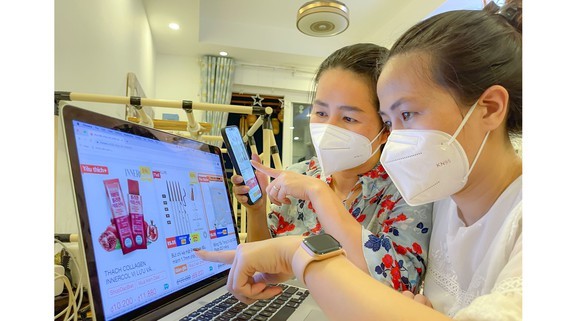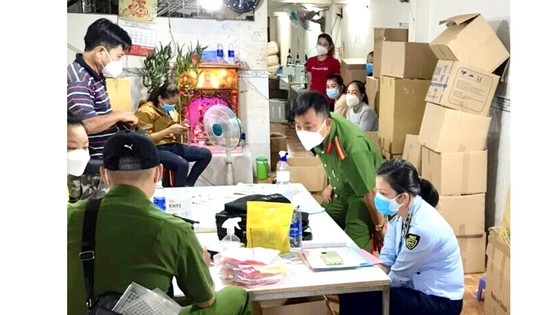
Nguyen Thi Trang, director of an apparel company in District 8 of HCMC reported that in the last few months of the Covid-19 outbreak in the city, her organization has had to temporarily stop operation, yet still provided sufficient care for her employees while fulfilling tax obligations. Sadly, her newest fashion collection has been continuously copied and sold on various online channels. Such illegal activities have strongly discouraged law-abiding businesses like hers.
Thanks to advanced technologies nowadays, buyers can easily access different shops possessing diverse merchandise with competitive prices. This, to some extent, has boosted the consumption of goods on the market. Yet at the same time, it has allowed serious illegal business activities that are hard to control. People might feel convenient buying food at local unregistered shops in their neighborhood, but they are not guaranteed the origin or safety of these foods.
According to shop owner Le Thi Lien in District 12, she and other qualified shop owners have to pay from a few to tens of millions of VND (approx. US$44-1,000+) a year to fulfill their tax duty.
“Compared to them, unregistered spontaneous shops do not pay even a penny of tax, which is absolutely unfair to business people, unsafe to consumers, and harmful to the authorities in the long term”, expressed Ms. Trang annoyingly.
Head of the HCMC Institute of Economy and Management Dr. Tran Quang Thang informed that online commerce activities at present in the city are pretty busy, which means there is a high demand from consumers in this channel. That requires functional agencies to impose stricter monitoring over goods quality and tax paying, which is quite a challenge.
According to the current law, regardless of operation channel, all business people have to pay a value added tax and income tax when their revenues are from VND100 million ($4,400) per year.

Another issue is the exaggeration of product advertisements, along with the selling of fake or copied merchandise of poor quality, due to too loose quality control from the authorities. There are also enterprises having been established for only a few months just to smuggle goods of great value. When discovered, true owners of these organizations immediately form a new company under the name of a new owner and operate in a new location.
Vice Chairman of the HCMC Consumer Right Association Nguyen Viet Hong admitted that not all people who were cheated decide to sue scammers. Moreover, certain renowned businesses, even knowing they are faked, only silently handle the situation for fear of losing their reputation. That results in the unawareness of consumers about fake goods.
Vice Chairman Hong warned that buyers should either purchase goods on formal online channels, platforms or choose merchandise from their trusted shops. No matter how cheap they are, goods of unclear origin should not appear on the purchase list of any person.
Dr. Thang proposed a closer cooperation between functional agencies of different industries to monitor online business activities to ensure legal rights of consumers and avoid tax revenue loss.
























